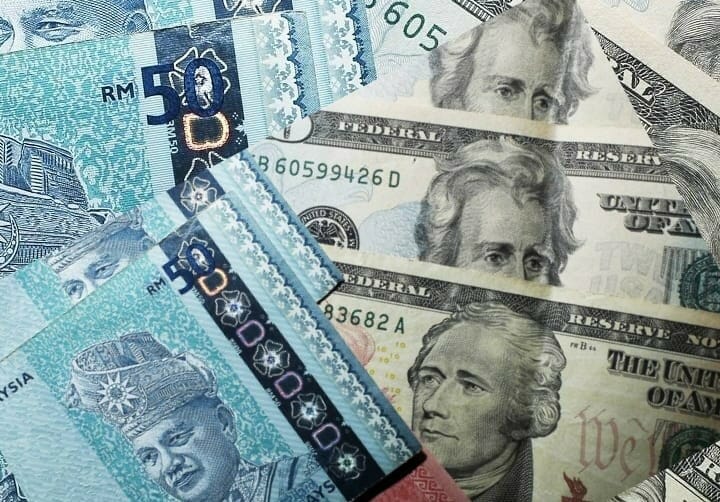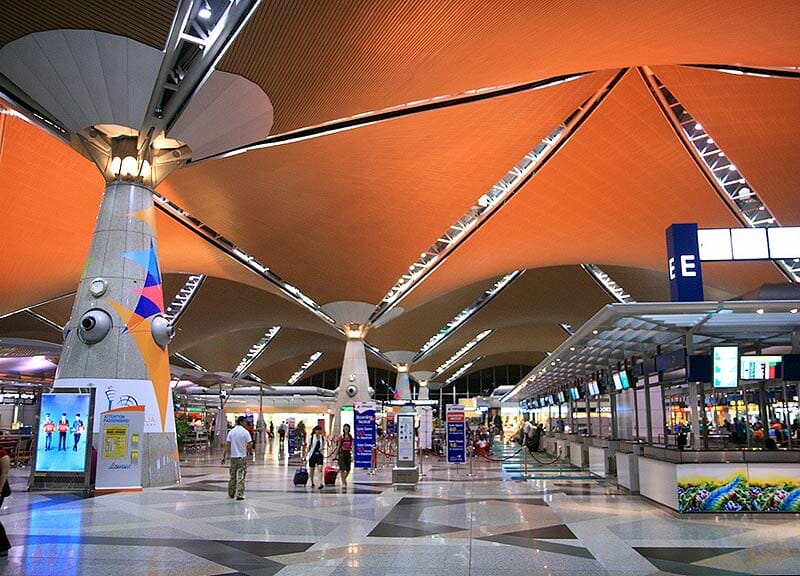It’s been quite a year for Malaysia, from the elections to the imprisonment of our former Prime Minister, all while the COVID-19 pandemic and its economic complications continue to reverberate through the country.
SRC conviction of Datuk Seri Najib Razak, 1MDB trial, and 1MDB audit report trial
This year, the Malaysian courts certainly made headlines with salient verdicts handed down against politicians and public figures charged with corruption, money-laundering, criminal breach of trust (CBT) and murder cases.
The high-profile ruling saw Datuk Seri Najib Tun Razak become the country’s first former prime minister sent to jail for a criminal offence.
Najib, 69, was sent to Kajang Prison to serve his jail term after the Federal Court, on August 23, upheld the conviction and 12 years jail sentence and RM210 million fine imposed on him by the High Court here for misappropriating RM42 million of SRC International Sdn Bhd funds.
A five-member bench led by Chief Justice Tun Tengku Maimun Tuan Mat, in dismissing Najib’s appeal against the Court of Appeal ruling which affirmed the High Court’s decision (12 years’ jail sentence and RM210 million fine), held that Najib, during the SRC International trial did not dispute that the RM42 million had entered into his personal bank accounts.
The spotlight was also on Najib’s wife, Datin Seri Rosmah Mansor, as a week after that, she was found guilty of three graft charges in connection with the solar hybrid project worth RM1.25 billion for 369 rural schools in Sarawak and was sentenced to 10 years in prison and a fine of RM970 million by the Kuala Lumpur High Court on September 1.
The court also ordered Rosmah, 70, to be jailed for 30 years if she fails to pay the fine. She had been granted a stay of execution of the jail sentence and fine pending an appeal at the Court of Appeal.
FBM KLCI Goest on a roller coaster ride
Bursa Malaysia’s benchmark index, the FBM KLCI, went on a roller-coaster ride in 2022 due to multiple factors including global recession fears, monetary policy jitters, China’s zero-Covid policy, Russia-Ukraine war and, not to forget, domestic politics.
In the first quarter of the year (Q1), the FBM KLCI ended 1.3% higher quarter-on-quarter at 1,587.36 points as Covid fears waned with plantation, financial services and construction the best performing sectors while technology was the main detractor.
Analysts said markets then corrected up till the end of February but crumbled once again when Russia invaded Ukraine.
In Q2, the FBM KLCI started strong, only to fade following the US Federal Reserve’s hawkish stance and remained low as Covid-19 Omicron variant infections peaked globally.
The Bursa benchmark index showed resilience up until May on the back of strong foreign inflows. It fell in June in tandem with the global selloff as growing inflationary and recessionary fears weighed on investor sentiment.
Up until June, the best-performing sectors were plantation and financial services, both of which were the favourites among foreign investors. The plantation sector was supported by strong commodity prices in the first five months of the year while the financial services segment is inclined to thrive in a rising interest rate environment.
In July, the FBM KLCI demonstrated resilience until the end of August, aided by the expectation of an earlier-than-expected Fed policy pivot following the release of a softer inflation report. During this period, market sentiment improved globally with Malaysia attracting strong foreign inflows.
In addition, the Malaysian financial services sector is often seen as a proxy for foreign investors to enter and gain exposure in the local equity market.
Bank Negara Malaysia Report Stronger Expansion Of 14.2% In The Third Quarter (2Q 2022: 8.9%)
The Malaysian economy registered a stronger growth of 14.2% in the third quarter of 2022 (2Q 2022: 8.9%). While there were base effects from the negative growth in the third quarter of 2021, growth was also driven by strong domestic demand, underpinned by improvements in labour market and income conditions, as well as ongoing policy support. Exports remained supported by strong demand for E&E products.
The recovery of inbound tourism lent further support to economic activity. By sector, the services and manufacturing sectors continued to drive growth. On a quarter-on-quarter seasonally-adjusted basis, the economy grew by 1.9% (2Q 2022: 3.5%). Overall, the Malaysian economy expanded by 9.3% in the first three quarters of 2022.
Headline inflation is likely to have peaked for the year at 4.5% during the quarter (2Q 2022: 2.8%) while core inflation increased further to 3.7% (2Q 2022: 2.5%). As expected, the increase in headline inflation was largely driven by the base effect from the discount on electricity bill implemented in the third quarter of 2021, as well as sustained increases in core inflation and price-volatile items. The inflationary pressures reflected the confluence of elevated cost pressures, particularly for food-related items, and strong demand conditions.
The ringgit depreciated by 4.9% against the US dollar in the third quarter of 2022 (YTD until 9 November 2022: -11.2%), in line with regional currencies which depreciated by an average of 5.5% (YTD: -9.5%). This reflected the continued strengthening of the US dollar amid further monetary policy tightening by the US Federal Reserve and higher investor risk aversion due to moderating global growth prospects.
Nonetheless, strong domestic growth mitigated further downward external pressures on the ringgit. Moving forward, although domestic financial markets may face the risk of higher volatility, spillovers to domestic financial intermediation are expected to remain contained, supported by Malaysia’s healthy external position and well-capitalised banking system. The Bank will continue to closely monitor market developments and ensure that adjustments remain orderly to support effective intermediation for the economy.
Headline Inflation To Moderate For The Remainder Of 2022
Headline inflation is expected to moderate in the fourth quarter of 2022, but remain elevated. The base effect from the discount on electricity bill which contributed to higher inflation in the third quarter will dissipate in the fourth quarter of 2022[2]. Overall, headline inflation is expected to average at 3.3% in 2022.[3] Underlying inflation, as measured by core inflation, is expected to stay elevated for the remainder of 2022 given improving demand amid the high-cost environment.
Moving into 2023, headline and core inflation are expected to remain elevated amid both demand and cost pressures, as well as any changes to domestic policy measures. Additional upward pressures to inflation will remain partly contained by the existing price controls, subsidies, and the remaining spare capacity in the economy. The balance of risk to the inflation outlook in 2023 is tilted to the upside and continues to be subject to domestic policy measures on subsidies, as well as global commodity price developments arising mainly from the ongoing military conflict in Ukraine and prolonged supply-related disruptions.
Malaysia reopened its borders on April 1 as it seeks to revive the country’s economy, especially the tourism industry, which has been hit hard by the Covid 19 pandemic.
Datuk Seri Ismail Sabri Yaakob said the decision was made based on the latest scientific evidence and facts related to Covid-19, and comparing the requirements for the reopening of borders by other countries. He said the move was also to ensure the comfort of travellers as well as to not complicate their journey.
“Most importantly, Malaysia is now an open destination and accessible to all,” Ismail said after announcing the country’s transition to the endemic phase in a special announcement on Tuesday (March 8).
Prime Minister Anwar Ibrahim’s motion of confidence has been passed in parliament, winning vital backing for his premiership after an election last month returned an unprecedented hung parliament.
Anwar had convened parliament to prove his majority, after rival and former Prime Minister Muhyiddin Yassin cast doubt on his support.
The confidence motion was passed by a simple voice vote – with legislators voicing their support – after the opposition argued against it because Anwar has already been officially sworn in as prime minister by the monarch.
“The ayes have it … We have a sufficient majority, and it is two-thirds,” communications and digital minister Fahmi Fadzil said.
“The unity government in Malaysia stands strong with solid support, and we will focus on the people’s welfare,” he added.
















